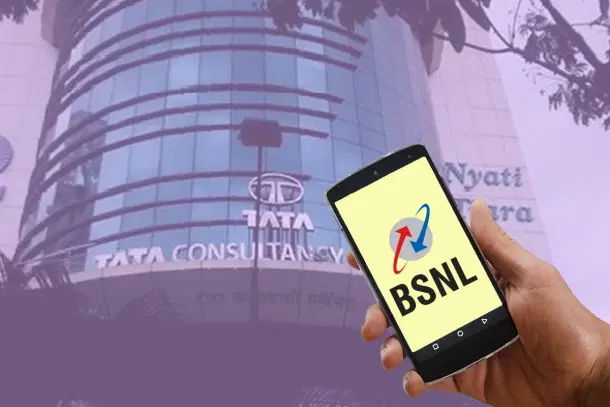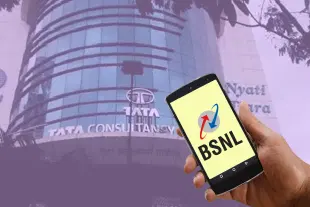News Brief
The Story Behind TCS & BSNL's Indigenous 4G Rollout: 97,500 Towers Commissioned at Rs 37,000 Crore, 20 Lakh Rural Customers
Swarajya Staff
Sep 28, 2025, 02:11 PM | Updated 02:11 PM IST
Save & read from anywhere!
Bookmark stories for easy access on any device or the Swarajya app.


Prime Minister Narendra Modi on September 27, 2025, launched the Bharat Sanchar Nigam Limited (BSNL)'s Swadeshi 4G network from Jharsuguda in Odisha. This indigenous initiative, spearheaded by a consortium led by Tata Consultancy Services (TCS), marks a milestone in the country's push for self-reliance in telecommunications.
The launch includes the commissioning of over 97,500 mobile towers, with an investment of Rs 37,000 crore, aimed at connecting an additional 26,700 remote villages across states like Odisha, Andhra Pradesh, Uttar Pradesh, Maharashtra, Rajasthan, Assam, Gujarat, and Bihar.
The Swadeshi 4G stack, developed entirely with homegrown technology, positions India among the top five nations globally capable of manufacturing their own telecom equipment, joining the likes of Denmark, Sweden, South Korea, and China.
PM Modi, during the inauguration, emphasised that this achievement strengthens Atmanirbhar Bharat and provides secure, high-speed internet to rural areas and border districts. He stated, 'With this, India has entered the league of select countries with indigenous technology for 4G services. ' The network is expected to benefit around 20 lakh new subscribers and features solar-powered sites for sustainability, paving the way for a seamless upgrade to 5G.
This rollout comes amid growing concerns over foreign dominance in telecom infrastructure, particularly from Chinese firms like Huawei. The US has imposed stringent sanctions on Chinese networking equipment since 2019, citing national security risks, which have influenced global supply chains.
In India, Huawei and other Chinese companies have held significant market share, but geopolitical tensions and bans on Chinese apps and equipment have accelerated the shift towards indigenous alternatives. Union Minister Jyotiraditya Scindia highlighted that the BSNL project allows India to enter the 'coveted club of nations manufacturing telecom equipment,' reducing dependency on imports.
Andhra Pradesh Chief Minister N. Chandrababu Naidu praised the move, predicting India's emergence as a global telecom leader by 2047.
TCS, which secured a $1. 83 billion contract from BSNL in 2023 in partnership with the Centre for Development of Telematics (C-DOT) and Tejas Networks, has been instrumental in deploying this network. The initiative not only bridges the digital divide in rural India but also enhances secure communication for soldiers in remote areas.
Sources indicate that the full 4G rollout across states like Telangana is targeted for completion by March 2026, with nationwide expansion planned. This development is seen as a strategic response to Huawei's past dominance, where the Chinese giant controlled a large portion of India's 4G and 5G trials before restrictions were imposed.
Industry experts note that this indigenous push could mitigate risks associated with US sanctions on Chinese firms, which have disrupted global telecom supplies.





